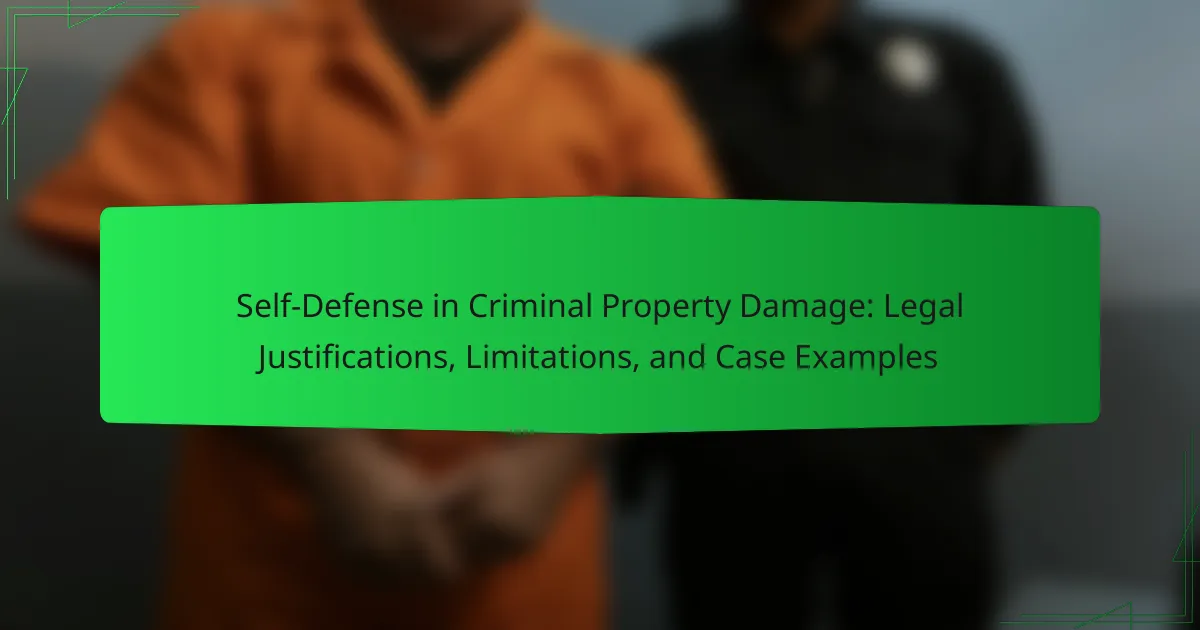Self-defense in the context of criminal property damage is a legal justification that allows individuals to use force to protect their property from imminent harm. This concept emphasizes that the force applied must be proportional to the perceived threat, with laws varying by jurisdiction regarding what constitutes reasonable force. Legal standards typically require individuals to […]
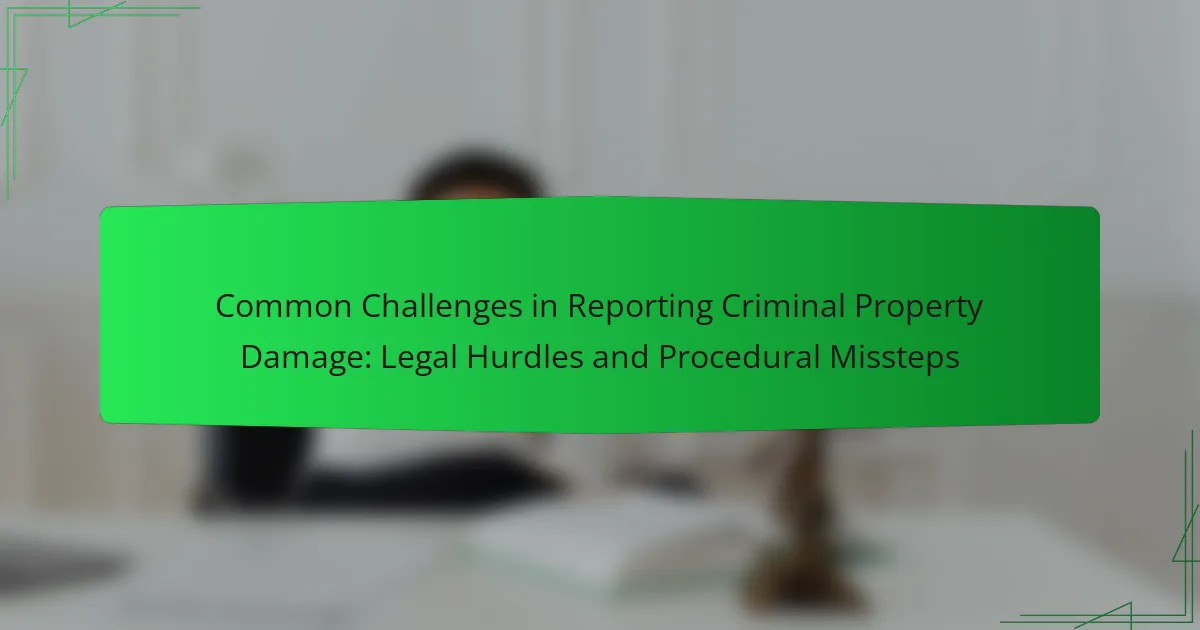
Common Challenges in Reporting Criminal Property Damage: Legal Hurdles and Procedural Missteps
The article addresses the common challenges faced in reporting criminal property damage, focusing on issues such as underreporting, lack of evidence, and procedural complexities. Victims often hesitate to report incidents due to fear of retaliation or emotional distress, while varying laws across jurisdictions complicate the reporting process. Accurate reporting is crucial for ensuring justice, as […]
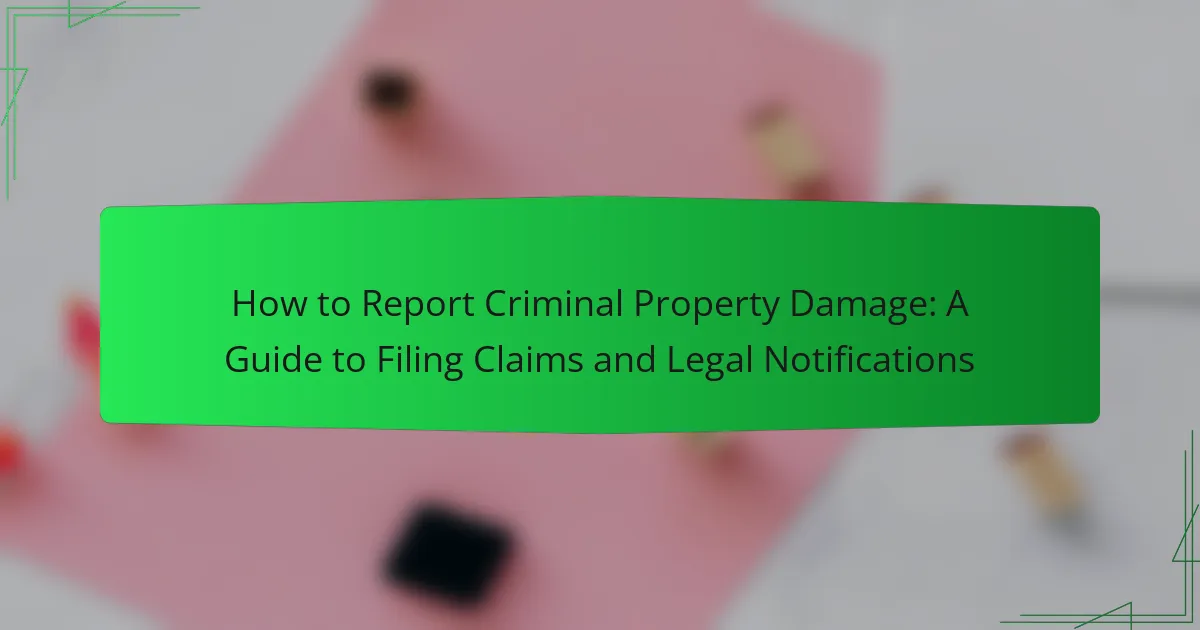
How to Report Criminal Property Damage: A Guide to Filing Claims and Legal Notifications
Criminal property damage involves the intentional destruction or alteration of another person’s property, encompassing acts such as vandalism and graffiti. This offense is classified as a criminal act and can lead to both criminal charges and civil liability, with penalties varying based on the damage’s extent and intent. Reporting such damage requires contacting local law […]
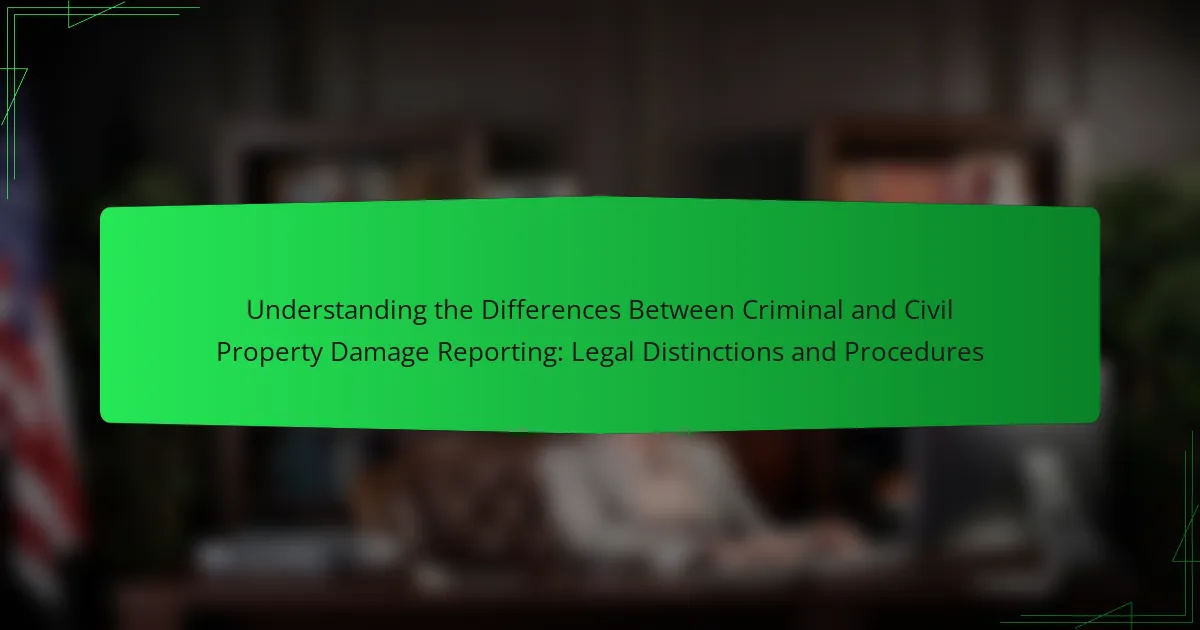
Understanding the Differences Between Criminal and Civil Property Damage Reporting: Legal Distinctions and Procedures
Criminal property damage reporting involves notifying law enforcement about illegal actions that result in damage, such as vandalism or arson. This process is distinct from civil property damage reporting, which addresses disputes between individuals or entities and focuses on compensation rather than criminal prosecution. The article outlines the key differences between these two reporting processes, […]
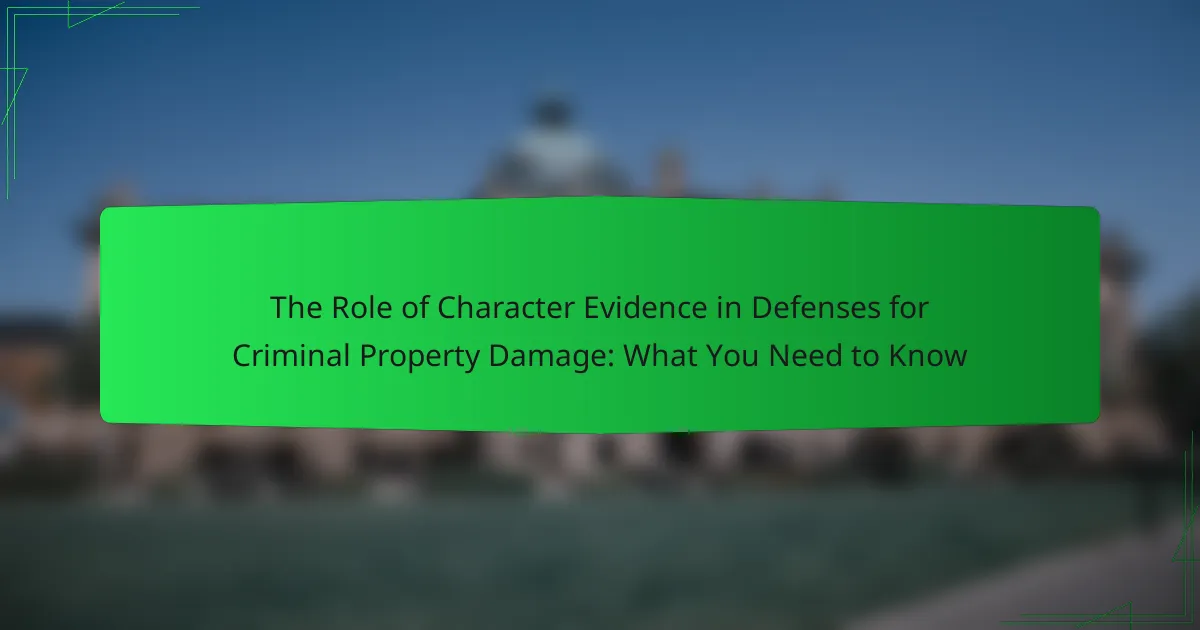
The Role of Character Evidence in Defenses for Criminal Property Damage: What You Need to Know
Character evidence is a critical element in the defense strategies for criminal property damage cases. It serves to establish a defendant’s tendency toward non-violent behavior, which can suggest an unlikelihood of committing property damage. This type of evidence can counter claims of intent or malice, bolstering arguments such as self-defense through a history of good […]
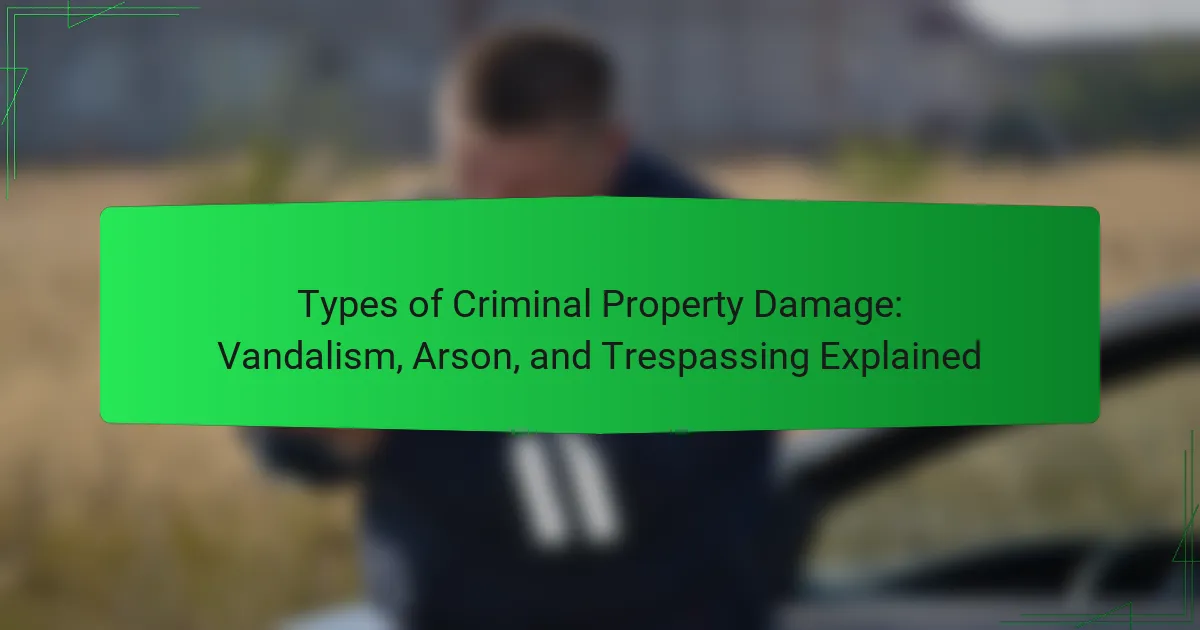
Types of Criminal Property Damage: Vandalism, Arson, and Trespassing Explained
Criminal property damage encompasses three primary types: vandalism, arson, and trespassing. Vandalism involves the intentional destruction or defacement of property, such as graffiti and broken windows. Arson is the deliberate act of setting fire to property, causing significant damage and potential harm to lives. Trespassing occurs when individuals unlawfully enter or remain on private property. […]
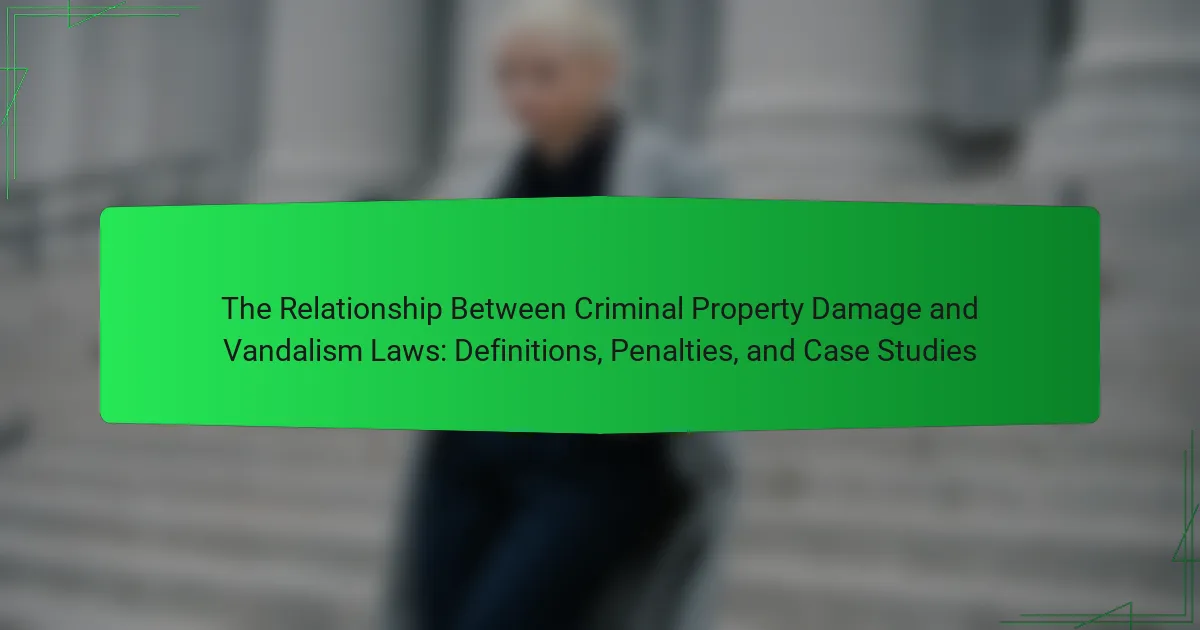
The Relationship Between Criminal Property Damage and Vandalism Laws: Definitions, Penalties, and Case Studies
Criminal property damage and vandalism laws are legal frameworks that address the unlawful destruction or defacement of property. Criminal property damage involves the intentional or reckless destruction of another person’s property, while vandalism specifically includes acts of defacement such as graffiti or breaking windows. Both offenses can incur civil and criminal penalties, which vary based […]
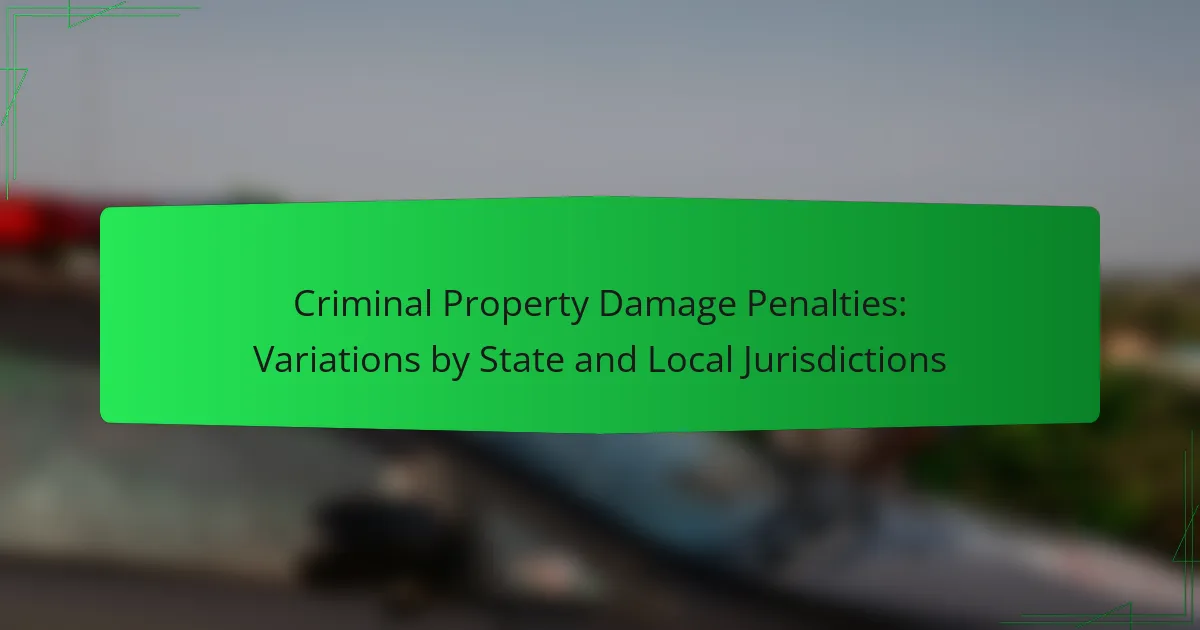
Criminal Property Damage Penalties: Variations by State and Local Jurisdictions
Criminal property damage penalties refer to the legal consequences imposed on individuals who cause damage to property, and these penalties can vary significantly by state and local jurisdiction. The article examines how penalties typically include fines, restitution, and imprisonment, with the severity of the penalties often depending on the extent of the damage. It highlights […]
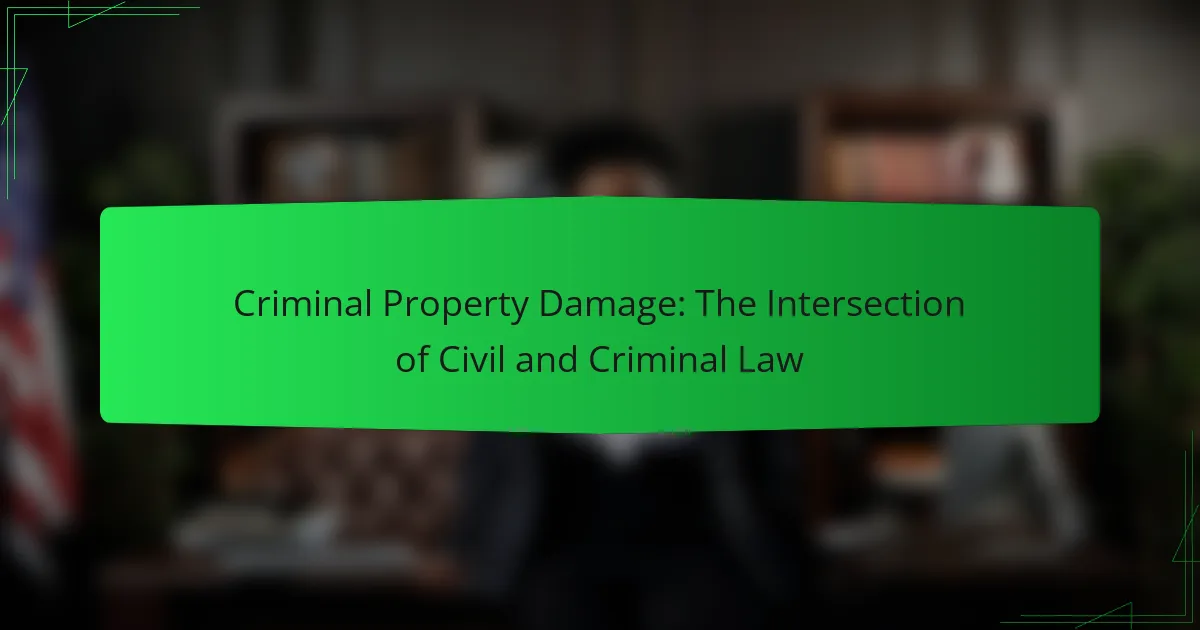
Criminal Property Damage: The Intersection of Civil and Criminal Law
Criminal property damage refers to the intentional destruction or defacement of another person’s property, encompassing acts such as vandalism and arson. This offense is typically classified as a misdemeanor or felony, with penalties that may include fines, restitution, or imprisonment. The relationship between criminal and civil law is significant, as victims can seek compensation through […]
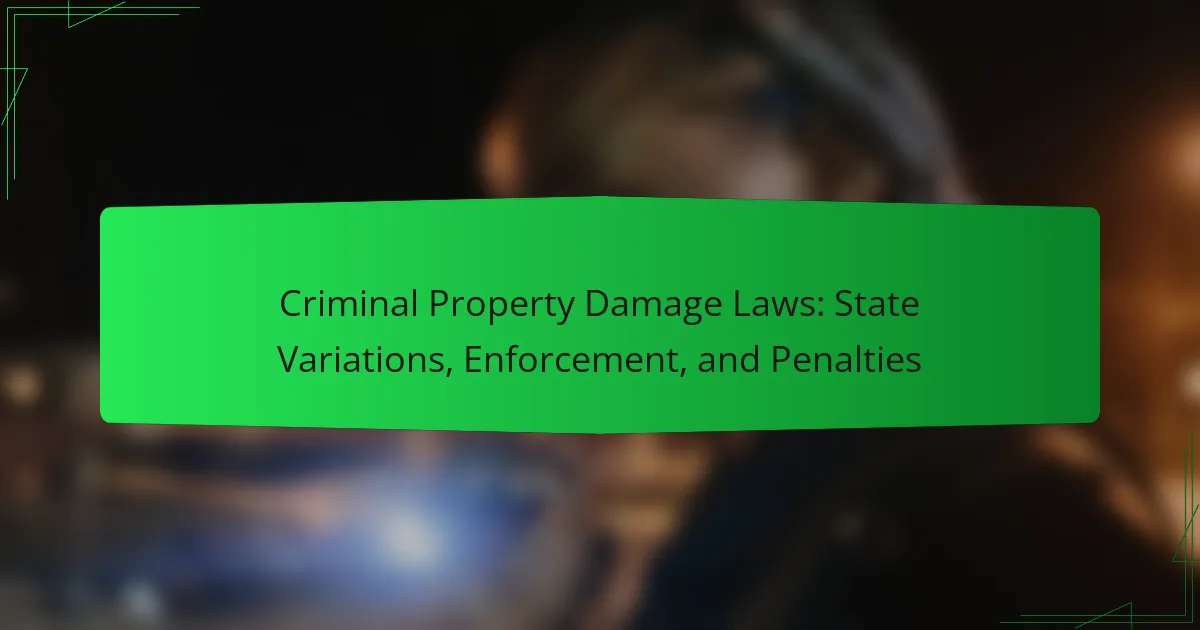
Criminal Property Damage Laws: State Variations, Enforcement, and Penalties
Criminal property damage laws are regulations that prohibit the intentional destruction or defacement of another person’s property, varying by state in their definitions and penalties. Common offenses under these laws include vandalism, graffiti, and breaking windows, with the severity of penalties often linked to the value of the damaged property. Enforcement mechanisms involve local law […]
